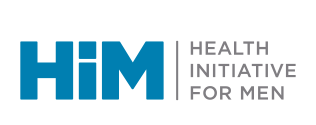Other Prevention Strategies
PrEP is very safe to take.
Most of us who take PrEP won’t experience any side effects at all. For those of us who do feel side effects, they tend to be minor: nausea, diarrhea, headaches, or dizziness. According to research, less than 1% of those of us who take PrEP will experience these side-effects, and they usually go away in a few days to a couple of weeks as the body adjusts to being on PrEP.
Some people may experience more serious side effects from PrEP. These are very rare but can include: small decreases in white blood cell counts, reduced kidney function, or reduced bone density (strength). Research has shown that these side effects are reversed after a person stops taking PrEP. To date, there have been no reported PrEP-associated hospitalizations or deaths.
Having a knowledgeable care provider while we’re on PrEP is important. They can help us manage minor side effects and monitor us for signs of the rare but serious side-effects.
Condoms
Condoms (and appropriate lube) are still a good HIV-prevention strategy and are the best way of preventing other STIs.
For condoms to provide maximum benefit, they should be used as much as possible for sex where HIV is more likely to be passed. This includes anal and front hole sex, and when sharing sex toys with partners who may have HIV and not have an undetectable viral load.
Condoms also need to be used correctly.
You can get condoms of many different types for free at HIM Health Centres and a number of sexual health clinics around BC. Go to checkyourself.today for a full map of where you can get free condoms in BC.
U = U: Undetectable = Untransmittable
When a person living with HIV is able to go on and stay in treatment, we may get to the point that we cannot pass HIV.
For condoms to provide maximum benefit, they should be used as much as possible for sex where HIV is more likely to be passed. This includes anal and front hole sex, and when sharing sex toys with partners who may have HIV and not have an undetectable viral load.
Condoms also need to be used correctly.
You can get condoms of many different types for free at HIM Health Centres and a number of sexual health clinics around BC. Go to checkyourself.today for a full map of where you can get free condoms in BC.
PEP
An HIV-negative person takes PEP after an event where there is a serious exposure to HIV. In these cases, PEP helps prevent us from becoming HIV positive.
An HIV-negative person takes PEP after an event where there is a serious exposure to HIV. In these cases, PEP helps prevent us from becoming HIV positive.
Don’t confuse PEP with PrEP. PEP stands for Post-Exposure Prophylaxis: treatment to prevent transmission. It’s when medications are taken AFTER a risk to prevent HIV transmission.
We should consider taking PEP if we’ve had sex where there may be a higher likelihood of passing HIV: condomless anal sex, either topping or bottoming or front hole sex with someone whose HIV status or viral load is unknown. PEP is not for people who are reliably taking PrEP.
For PEP to be effective it has to be started within 72 hours, and the sooner the better. That’s because after 72 hours HIV has had enough time to establish itself in our body.
PEP is not 100% effective, but studies have shown that it significantly reduces the chances of picking up HIV.
PEP has to be taken for 28 days for it to be effective. PEP works by keeping HIV from being able to reproduce itself in the blood and so take hold in the body, the 28 days of treatment giving time for any initially infected cells to die without reproducing further.
Once begun, treatment must be taken for 28 days and must be taken regularly. If not taken regularly, PEP will not be as effective.
If you’re HIV-negative and think you could have been exposed to HIV in the last 72 hours you may want to check out PEP, visit checkyourself.today for a full map of where you access PEP.
Choosing kinds of sex that won’t pass HIV
There are lots of kinds of sex where HIV transmission are extremely unlikely. These include:
- Oral sex – sucking or having our dicks sucked, licking or having our anuses licked (rimming), and licking or having our front holes licked;
- Fingering, hand jobs, mutual masturbation;
- Some sex toy use;
- ‘Frottage’ (rubbing genitals, docking, thigh humping, etc.);
While sticking to these kinds of sex is an effective way of preventing HIV transmission, other STIs can be passed by simple skin-to-skin contact. That’s why it’s important to get tested regularly if we have any kind of sex!
